Do Pigs Attract RATS? (Let's Separate Fact From Fiction)
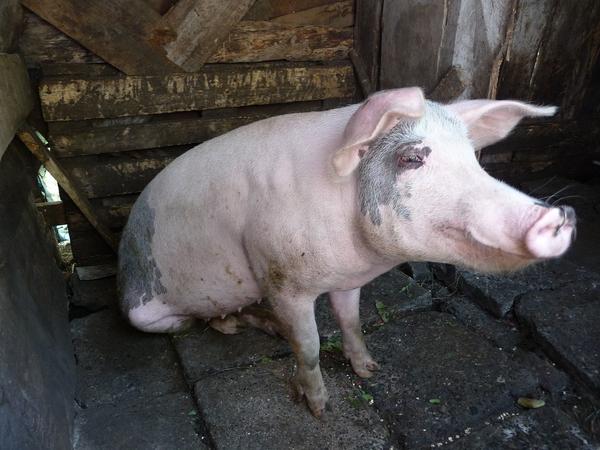
Are you worried sick about rats infesting your beloved pig farm?
I understand 👍.
You work hard, love your pigs, and the last thing you need is those raucous rats ruining everything.
But guess what?
Let's put your worries to rest and find out the truth together.
Let's dive in!
Pigs and Rats: Relationship and Dietary Interactions
Rats are attracted to pig farms due to the abundance of food, leading to increased rat populations and a higher risk of disease transmission. Controlling rats on pig farms is crucial to maintain biosecurity and protect the health of animals and humans.
Have you ever wondered about the relationship between pigs and rats?
Let me tell you, it's quite interesting.
Pigs and rats actually have a mutualistic relationship, believe it or not.
Now, here's the thing:
Rats love pig food. It's like a buffet for them.
They vacuum up all the tasty scraps and leftovers so nothing goes to waste.
But, there's a catch.
When rats dive into pig food, their population can skyrocket.
And that's not good news at all.
With more rats around, the risk of disease transmission increases. Trust me, you don't want rats running wild on a pig farm.
So, controlling rat populations is crucial on pig farms.
These sneaky creatures are drawn to places with lots of food and not-so-clean conditions.
We need to tackle this issue before it becomes a major problem.
Here's what you need to know:
Traps and pesticides may not be enough to handle these pesky rodents.
Rats breed like crazy, even faster than new Netflix seasons.
That's why we need to think outside the box.
One way to discourage rats from invading pig farms is by providing pigs with a balanced diet, just like us.
By doing so, we make their dining spots less attractive to rats.
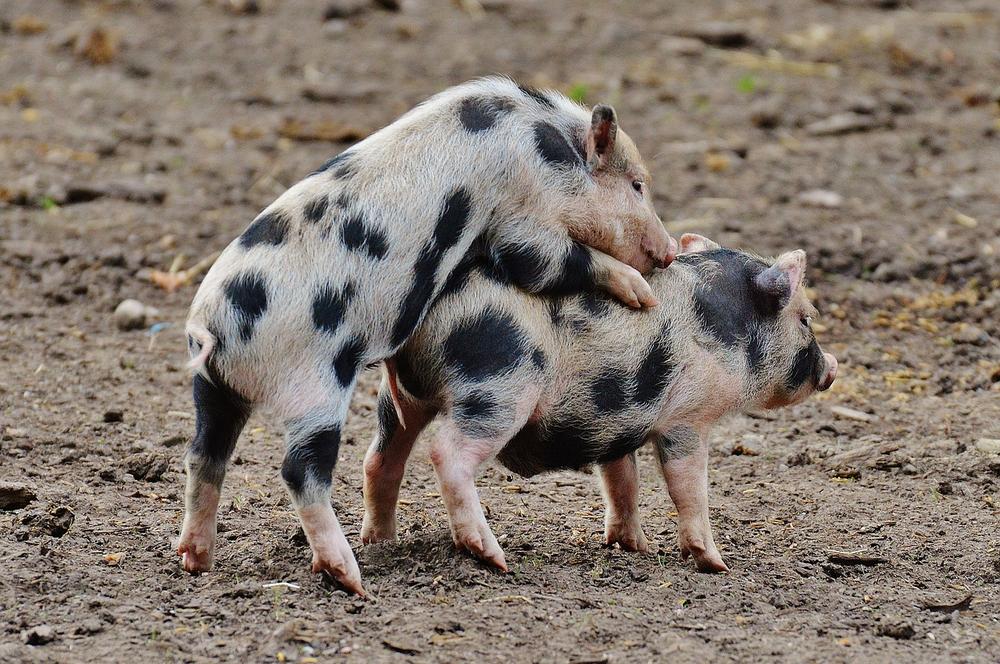
It's a win-win situation, don't you think?
Oh, and did I mention pigs and rats have a peculiar relationship when it comes to food theft?
Usually, pigs aren't aggressive towards rats unless they're annoyed or provoked.
But if a cheeky rat steals some pig grub, things get interesting.
Sometimes, pigs will actually eat the audacious rat that dared to steal their precious food.
Quite the sight, I must say.
But can you blame them?
It's survival of the fittest in Pigville.
However, this rat-eating behavior comes with its own set of problems, like an increased risk of disease transmission.
So, the best solution is to prevent rats from getting near pig food in the first place.
That way, both pigs and rats stay safe and protected.
Proper supervision and care are crucial when it comes to managing pigs and rats on a farm.
By ensuring that our pigs are well-fed and content, we discourage them from becoming aggressive rat hunters.
Keeping rat-free food for pigs is essential for maintaining a harmonious farm environment.
Here's where biosecurity plays a key role.
We need to eliminate rats to keep our pigs (and ourselves) healthy and out of harm's way. These furry troublemakers can wreak havoc by destroying food, contaminating supplies, and spreading diseases across farms.
And with climate change causing rodent populations to rise, controlling them has become more important than ever.
Main points I'll expand upon further down this article:
- Contact a professional exterminator for effective rat removal.
- Use rodent-proof buildings when planning new facilities for production animals.
- Wild pigs can eat almost anything, including rats.
- House mice breed throughout the year with 10-14 litters per year.
- Feeding pigs rats is unadvisable due to disease risks.
- Wild rodents like rats can introduce and spread pathogens on farms.
- Rats can contaminate pig feed with their urine and feces.
- Rats can carry diseases like Yersiniosis, Trichinellosis, and Encephalomyocarditis virus.
- Avoid feeding dead animals or rats to pigs to prevent disease transmission.
- Check local guidelines and regulations regarding the feeding of meat to pigs.
But here's something you might not know...
While pigs may have a mutualistic relationship with rats when it comes to food, their primary diet consists mainly of vegetation!
Yes, pigs are known to devour various food sources, including rodents, but their natural inclination is towards plants, roots, fruits, and nuts.
So, let's dive into the fascinating world of wild pigs and explore how we can address their presence and potential impact on ecosystems.
Trust me, this is information you don't want to miss!
Wild Pigs' Dietary Habits and Rodent Consumption
Wild pigs, like their domestic counterparts, have a versatile palate.

While they are notorious for feasting on an array of sustenance sources, such as rodents, you must acknowledge that their principal nourishment derives predominantly from vegetation – encompassing plants, roots, fruits, and nuts. Given the pressing issue of their excessive population, action must be taken to combat this surplus while also implementing preventive measures against unwelcome rodent invasions. Consequently, when scheming new production facilities for animals, constructing rodent-proof structures becomes imperative. With their omnivorous tendencies and devour-all attitude towards meals, addressing the presence of these wild hogs becomes paramount in order to preserve our diverse ecosystems.
Can Mini Pigs Eat Rats?
Can mini pigs eat rats? It's not a good idea, my friend.
Let me tell you, these little pigs are quite picky when it comes to food.
Now, I know some animals might munch on rats, but for our mini piggy friends, it's best to steer clear of them.
You see, rats carry diseases that can harm your beloved mini pig.
These diseases can be transmitted through eating rats or even being around them.
And trust me, you don't want your mini pig suffering from any of these nasty illnesses.
Now, if you're thinking about feeding your mini pig dead or cooked rats, let me stop you right there.
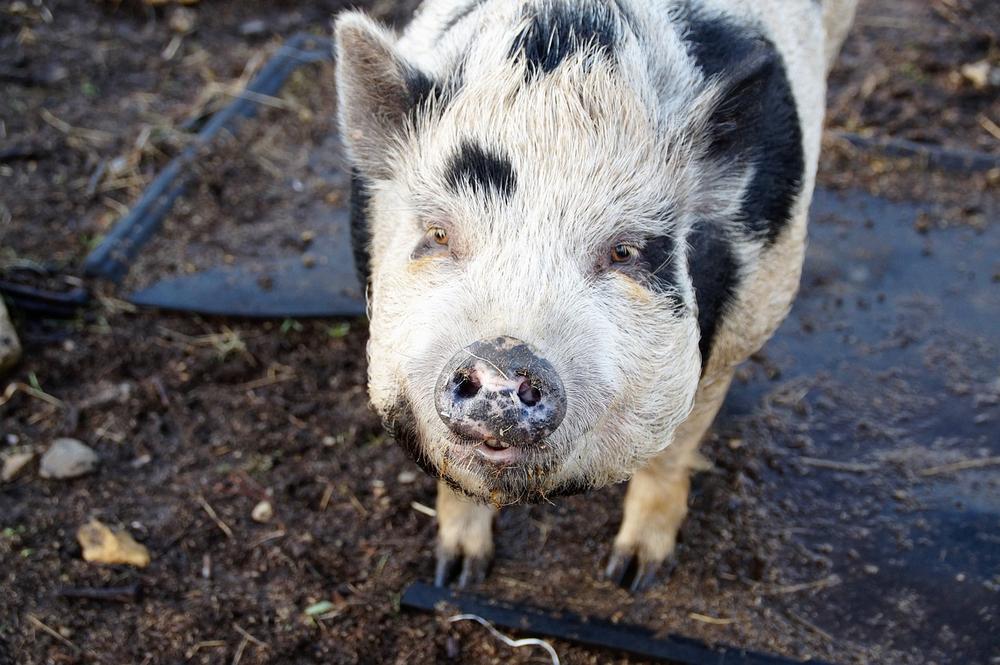
Even though they're dead or cooked, rats can still pose risks to your mini pig's health.
Plus, you should know that feeding pigs rats is prohibited in many places. So not only is it potentially dangerous for your mini pig, but it could also get you in trouble with the law.
And nobody wants that kind of trouble, right?
So my friend, if you want to keep your mini pig healthy and out of harm's way, it's best to stick to foods that are safe and recommended for them.
By doing so, you'll have one happy and healthy mini pig by your side.
Now, I know it's important to keep your mini pig's diet in check and ensure they stay healthy.
That's why I advise you to check out my guide Do Pigs and Cats Get Along.
This enlightening article explores whether pigs and cats can peacefully coexist as pets.
It's a topic that often sparks curiosity and concern, and I can assure you that you'll find the answers you're looking for.
How Rats Can Infect Pigs
Rats can infect pigs easily through direct contact, contaminated feed and water sources, and by leaving traces in the farm environment. This poses a risk to both pigs and humans, making it crucial to promptly address the presence of rats on pig farms.
You might be wondering, do rats really infect pigs?
Well, the answer is yes, my friend. Direct contact with rats, eating contaminated food or water, or simply sharing their space can make pigs catch all kinds of nasty diseases.
Just imagine:
Rats running around your pig farm, leaving traces of their pee and poop wherever they go.
Nasty, right?
And it gets even worse!
These rats carry dangerous diseases, like Lawsonia intracellularis, that spread to pigs through their dirty paths. This bacterium causes porcine proliferative enteropathy, which messes up their guts real bad.
But here's something interesting:
Not every disease jumps from rats to pigs.
For example, you don't have to worry about pigs catching porcine respiratory syndrome from rats.
That's one less thing to worry about!
However, rats can still create chaos on pig farms.
How, you ask?
These sneaksters snack on pig food and guess what?
They poop and pee on it.
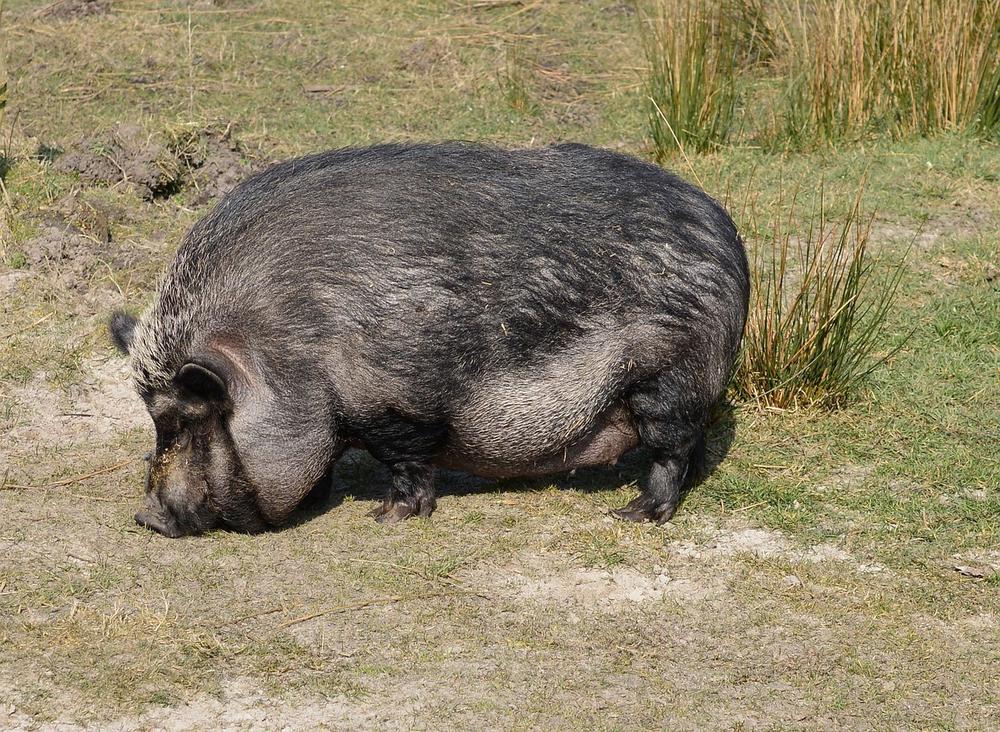
Disgusting, huh?
So when pigs eat that tainted food, they're also ingesting whatever diseases those rats are carrying.
Gotta keep those rodents away from your pigs' meals!
So, what's the deal?
Are pigs like catnip for rats or something?
Well, pigs attract rats because, hey, free food!
But don't worry, because there are steps you can take to protect your pigs and yourself.
You need to get rid of rats quickly to ensure the health and well-being of both pigs and humans on your farm.
Consider this a friendly reminder to stay alert and keep your farm rat-free.
Trust me, you'll thank yourself later.
After all, pigs and rats may seem like an odd pair, but they definitely don't mix well when it comes to good health.
So kick those rats outta there, my friend!
But here's the thing you won't believe...
Rats not only spread diseases to pigs, but they also pose a major threat to humans.
Intrigued?
Let me tell you about the pathogens carried by these rodents and their potential risks...
What Kind of Diseases Do Rats Carry That Can Infect Pigs?
Rats carry germs that can make both pigs and humans sick. I'll tell you the diseases rats can spread to pigs:
- Yersiniosis: Pigs get this from Yersinia enterocolitica, a bacteria found in rats like black and brown ones.
- Trichinellosis: This comes from tiny worms called Trichinella. They can also infect people, but we're not sure how much rats help spread it.
- Swine dysentery: It's caused by spiral-shaped bacteria, Brachyspira hyodysenteriae. Rats carry these bacteria.
- Porcine colonic spirochaetosis: Another illness caused by bacteria called Brachyspira pilosicoli. Rats give it to pigs.
- Encephalomyocarditis virus (EMCV): The virus makes pigs have heart problems. Wild rodents carry it and pass it through their poop.
To stop sickness, don't feed dead animals or rats to pigs.
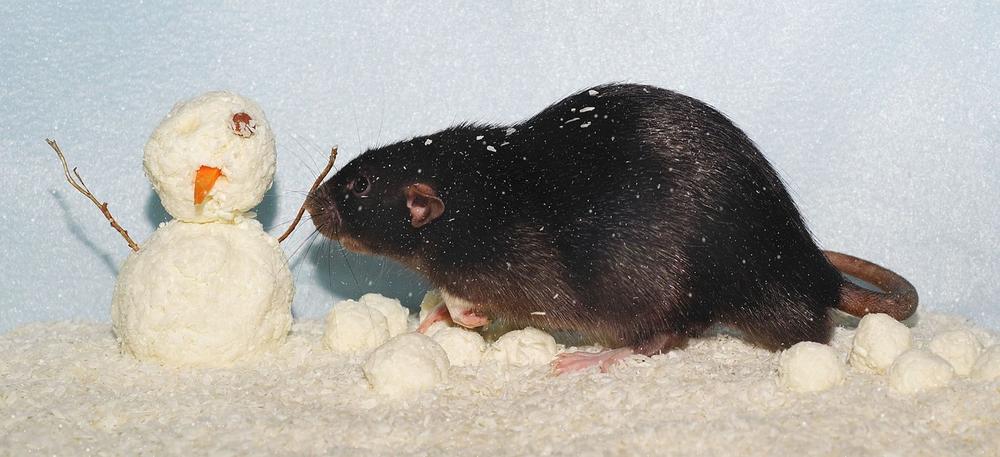
Be careful, because both pigs and humans can get infected. Take care!
What Dead Animals Do Pigs Eat?
There are specific facts you must be aware of regarding pig feeding.
First and foremost, you need to understand that raw and dead animals should not be fed to pigs.
This can lead to a rapid decay of the meat and spread diseases among the pig population.
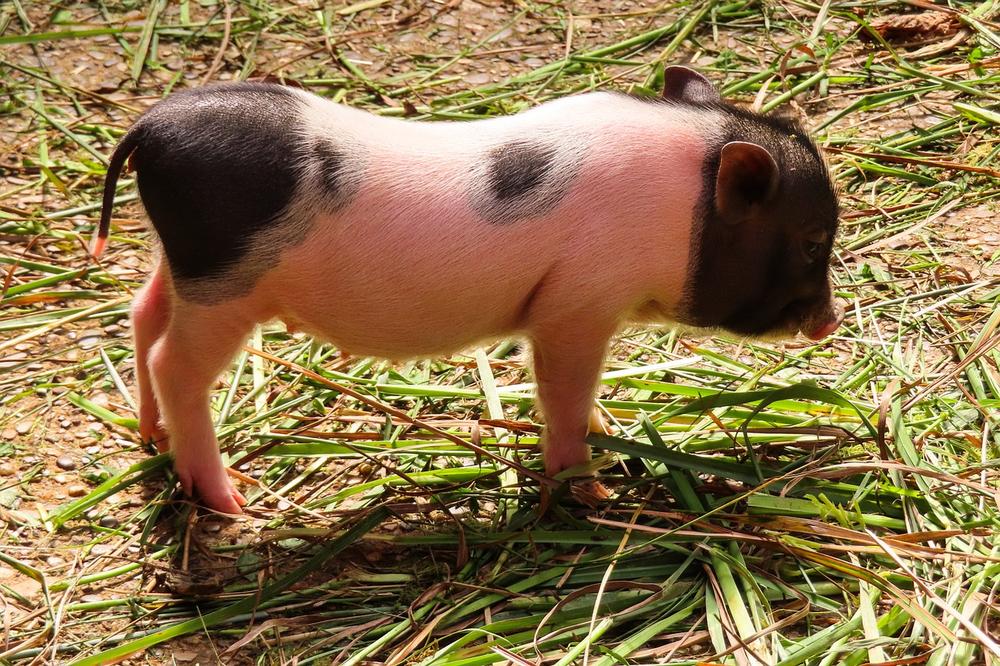
To ensure you're following regulations and guidelines, always adhere to local rules regarding the feeding of meat to pigs.
It's also worth noting that pigs have an omnivorous diet, which means they eat both plants and animals.
However, feeding pigs dead chicken or other animals is generally discouraged.
This is because it could develop a taste for hunting and may even result in them attempting to eat humans if they are extremely hungry and sense weakness.
To keep your pigs healthy and prevent any negative behaviors, here are some tips to consider:
- Make sure their diet consists mainly of balanced pig feed to meet their nutritional needs.
- Offer fresh fruits and vegetables as treats or supplemental food sources.
- Avoid feeding pigs spoiled or rotten food as this can lead to health issues.
- Keep their environment clean and maintain good hygiene practices, including regular cleaning of water and feeding areas.
- Regularly monitor their weight and in essence condition to identify any potential problems early on.
By adhering to these principles, you can guarantee the welfare of your pigs and avoid any undesirable behaviors or outcomes. 😊
And that's all for today folks.
Before you leave, can I ask if my blog post was helpful for you? If it was, I would genuinely appreciate it if you could share it with your loved ones. Just click on any of the social media sharing icons to instantly spread the word. Thank you so much!
Until next time,
-Chris Campbell